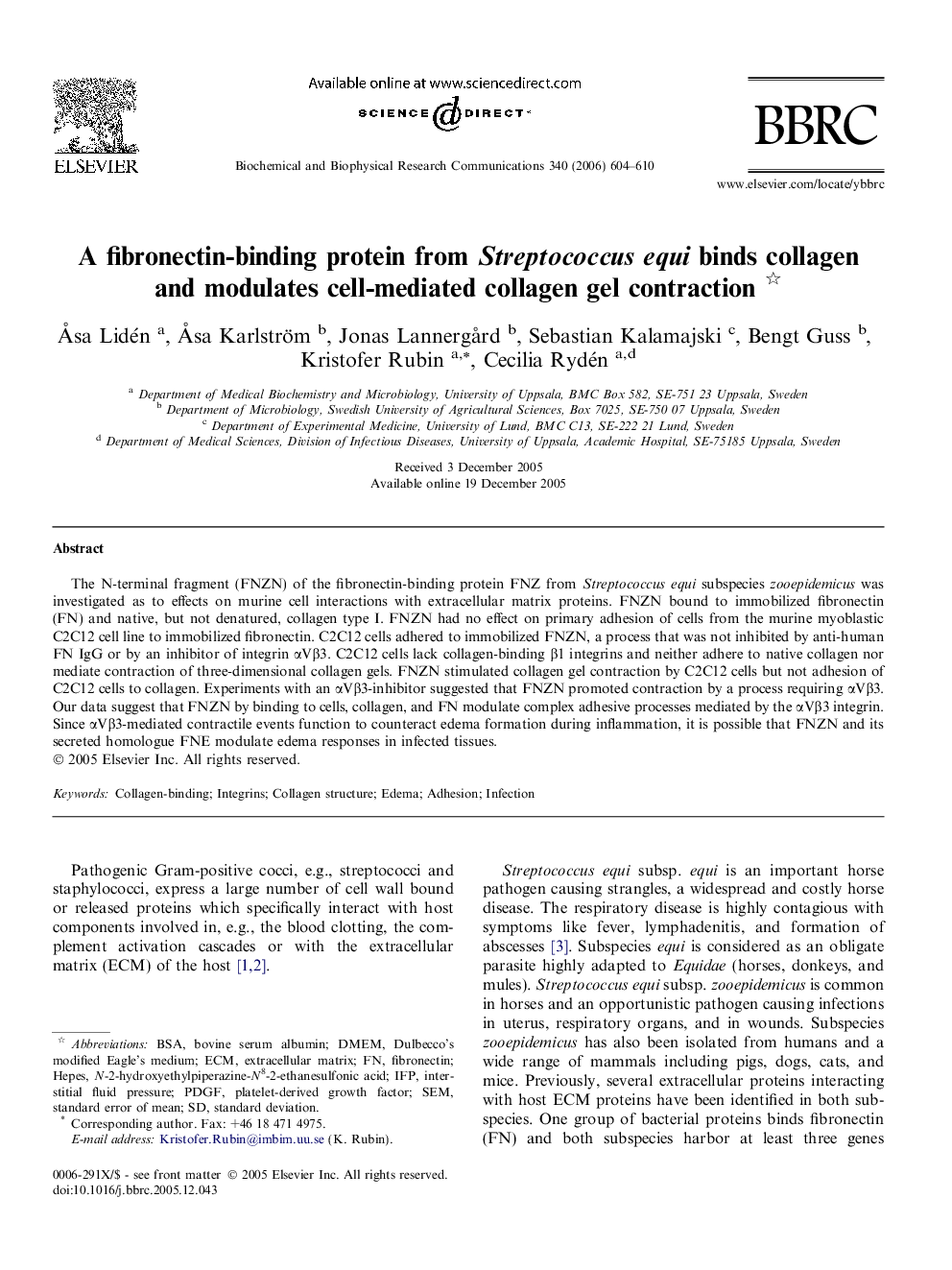| Article ID | Journal | Published Year | Pages | File Type |
|---|---|---|---|---|
| 1940360 | Biochemical and Biophysical Research Communications | 2006 | 7 Pages |
The N-terminal fragment (FNZN) of the fibronectin-binding protein FNZ from Streptococcus equi subspecies zooepidemicus was investigated as to effects on murine cell interactions with extracellular matrix proteins. FNZN bound to immobilized fibronectin (FN) and native, but not denatured, collagen type I. FNZN had no effect on primary adhesion of cells from the murine myoblastic C2C12 cell line to immobilized fibronectin. C2C12 cells adhered to immobilized FNZN, a process that was not inhibited by anti-human FN IgG or by an inhibitor of integrin αVβ3. C2C12 cells lack collagen-binding β1 integrins and neither adhere to native collagen nor mediate contraction of three-dimensional collagen gels. FNZN stimulated collagen gel contraction by C2C12 cells but not adhesion of C2C12 cells to collagen. Experiments with an αVβ3-inhibitor suggested that FNZN promoted contraction by a process requiring αVβ3. Our data suggest that FNZN by binding to cells, collagen, and FN modulate complex adhesive processes mediated by the αVβ3 integrin. Since αVβ3-mediated contractile events function to counteract edema formation during inflammation, it is possible that FNZN and its secreted homologue FNE modulate edema responses in infected tissues.
